Blog
Advice and expertise from AM, and special guest posts by leading archivists, academics and librarians from around the world.
-
TitleDescriptionDate
-
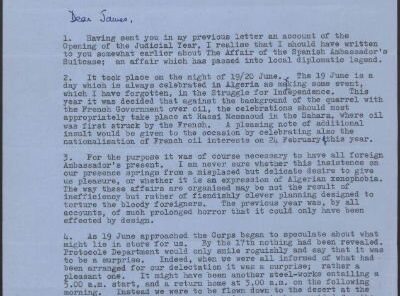 Affair of the Spanish Ambassador’s Suitcase
Affair of the Spanish Ambassador’s SuitcasePublished this week, Foreign Office Files for the Middle East, 1971-1981, is now available. Digitising full runs of Foreign Office files stored at The National Archives, this resource spans an extraordinary number of topics and events.
-
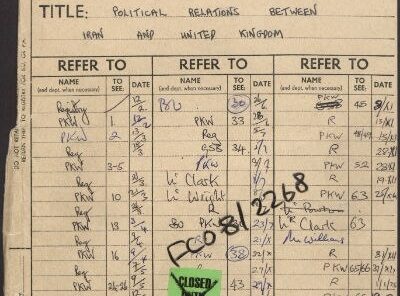 Leading the Pack: The Western Scramble for Iran: a special guest blog by Laila Parsons
Leading the Pack: The Western Scramble for Iran: a special guest blog by Laila ParsonsIn the spring of 1974, Anthony Derrick Parsons took up his new post as British ambassador to Iran. This posting was his first ambassadorship. Previously he had worked on the Middle East desk in the Foreign Office, had served as Political Agent in Bahrain, and as First Secretary to the UK Mission to the United Nations in New York.
-
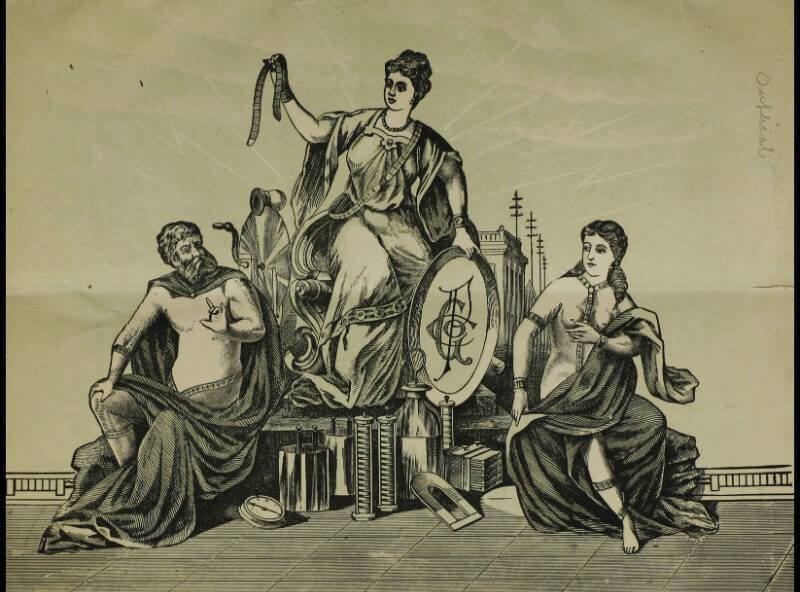 Electrifying Your Target Audience: Advertising Medicines in the Nineteenth Century
Electrifying Your Target Audience: Advertising Medicines in the Nineteenth CenturyWhilst I attempt to accept that “’tis no longer the season to be jolly” and I begin to tackle the pile of leftover Christmas chocolates on my desk, I’ve been looking back at some of my favourite documents from the projects I worked on in 2015. One that vividly stands out is a pamphlet titled ‘The Best Known Curative Agent: Pulvermacher's Electric Belts and Bands for Self-Application’ from our Popular Medicine in America, 1800-1900 resource.
-
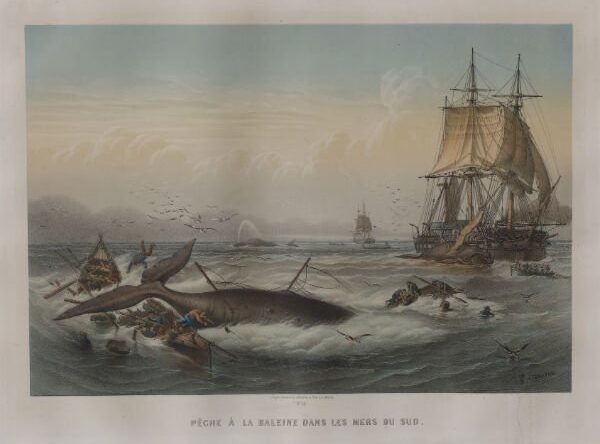 In the Heart of the Sea: stories of the whaling ship 'Essex'
In the Heart of the Sea: stories of the whaling ship 'Essex'Ron Howard’s new blockbuster, In the Heart of the Sea, is the latest retelling of the ill-fated final voyage of the Essex. Two years ago I wrote a blog to coincide with a BBC adaptation of the story, in which I summarised the account of Thomas Nickerson, a teenage boy who partook in that harrowing journey. Howard has used Nickerson as the narrator of his film, and this prompted me to look again at the memoir, which can be found in China, America and the Pacific.
-
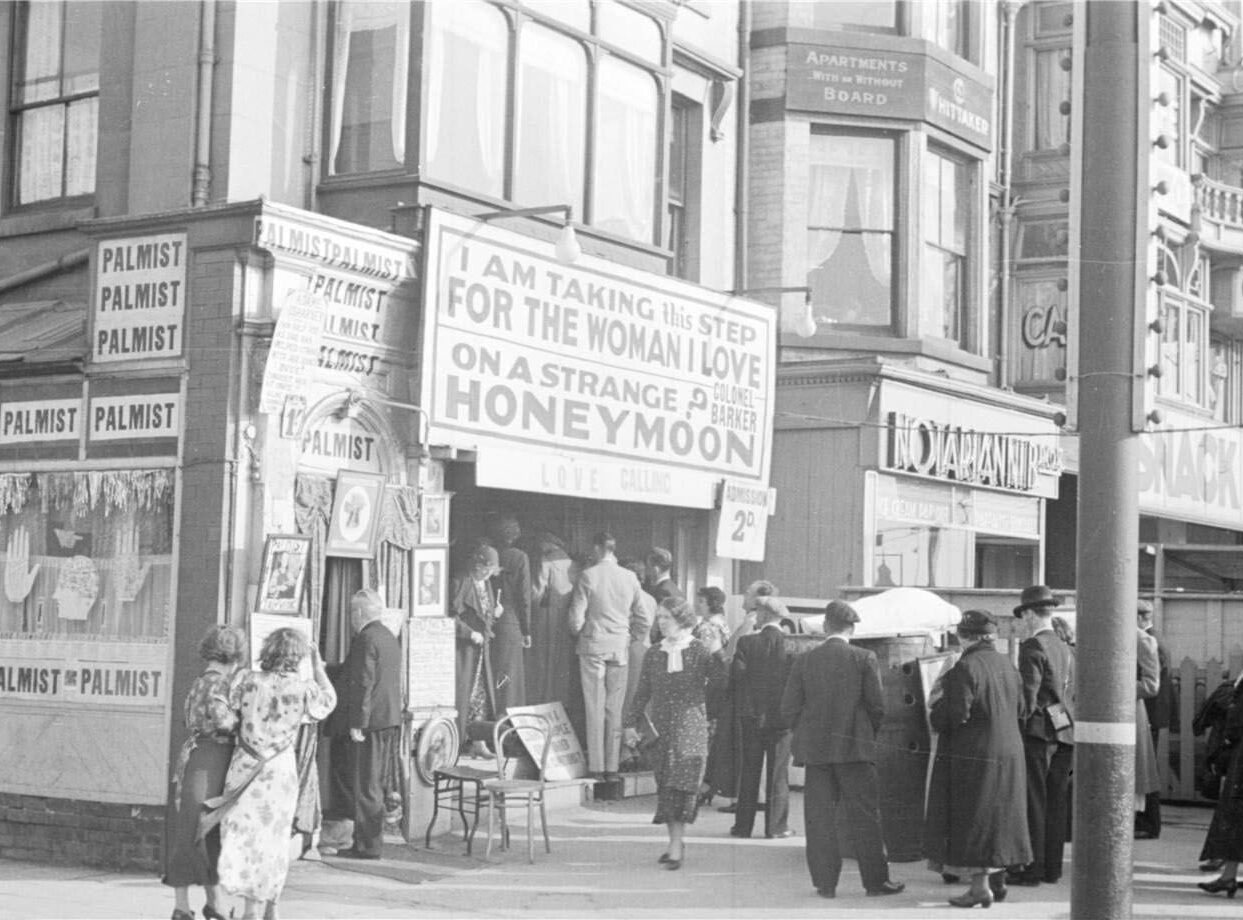 The Rector of Stiffkey: Life as a sideshow
The Rector of Stiffkey: Life as a sideshowIn 1960 the anthropologist Tom Harrisson returned from Borneo to Blackpool, where 23 years earlier he had directed survey work for Mass Observation. His stay was recorded in the MO book Britain Revisited, which took a shapshot of contemporary British life and compared it to what the ‘mass observers’ had seen and heard in 1937. Much in post-war Blackpool, Harrisson found, was as it had been, but the entertainments on the seafront had changed.
-
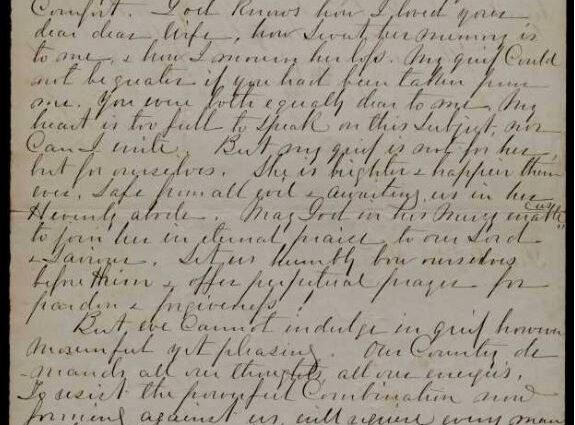 Robert E. Lee’s condolence letter to his son Rooney, 1864: A Special Guest Blog by Sandra Trenholm
Robert E. Lee’s condolence letter to his son Rooney, 1864: A Special Guest Blog by Sandra TrenholmIn this beautifully written letter, Confederate general Robert E. Lee attempts to console his son William Fitzhugh “Rooney” Lee on the loss of his wife. The letter demonstrates the emotion that Lee felt for his family and offers a glimpse of the strength that carried Lee through the war. His faith in God, his empathy for others’ misfortunes, and his belief in the Confederate cause, all granted Lee the fortitude he needed to endure the war. One can see all of these attributes in this single, short missive.
-
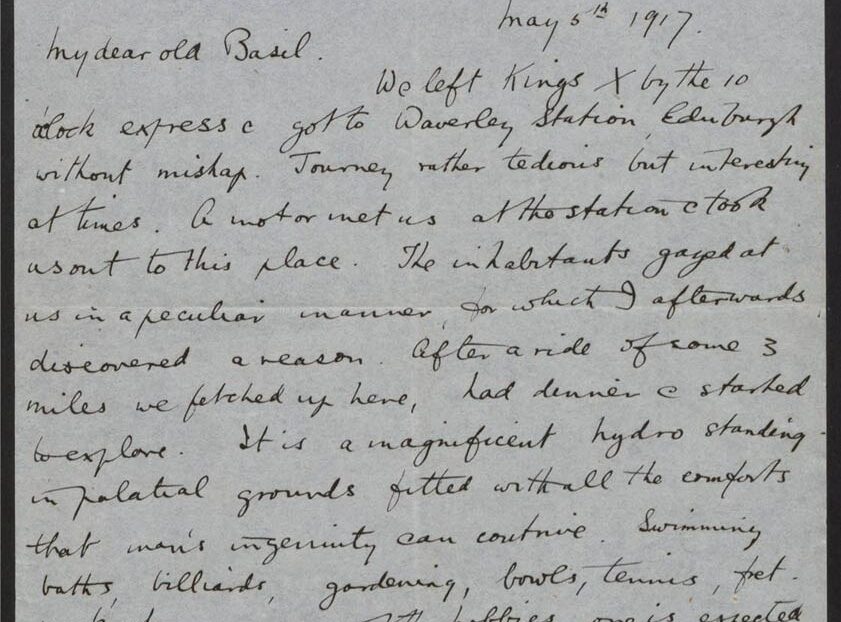 ‘My Dear Old Basil’: Letters from a Shell-Shocked Soldier
‘My Dear Old Basil’: Letters from a Shell-Shocked SoldierThe 4th December marks the anniversary of the publication of a paper entitled ‘The Repression of War Experience’, presented to the Royal School of Medicine in 1917 by W. H. Rivers. Rivers was a psychiatrist and neurologist, mostly known for his work with soldiers suffering from shell-shock, both during and following World War I. His paper advocated the best course of treatment for sufferers of shell-shock was for them to face their painful memories, rather than adopting an ‘ostrich-like policy of attempting to banish them from the mind.’
-
 Mother Goose – The Evolution of a Classic Christmas Pantomime
Mother Goose – The Evolution of a Classic Christmas PantomimeFirst performed at Covent Garden Theatre on Boxing Day, 1806, ‘Harlequin and Mother Goose; or, The Golden Egg, Airs, Chorusses, &c., in’ was a huge success, running for ninety-two nights and becoming a quintessential Christmas classic.
-
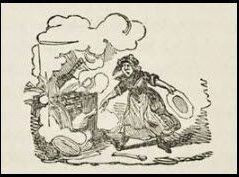 The perils of ‘Christmas Cookery’
The perils of ‘Christmas Cookery’Paul Pry’s 1838 text, Oddities of London Life, may be considered in many ways archetypal of the satirical social commentaries of the nineteenth-century lower classes that run throughout London Low Life, but William Heath’s highly amusing account of a “Christmas Cookery” is too amusing and aptly named to not share.
-
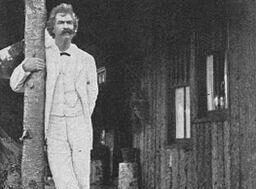 Mark Twain's BenevolenceWith the 180th anniversary of his birth approaching, it might be an apt time to present a different side to the acerbic wit we associate with one of America’s best-loved writers through a letter that can be found in American History, 1493-1945: From the Gilder Lehrman Institute of American History. It is also a letter which alludes to the United States’ post-American Civil War racial settlement and the legacy of that conflict.
Mark Twain's BenevolenceWith the 180th anniversary of his birth approaching, it might be an apt time to present a different side to the acerbic wit we associate with one of America’s best-loved writers through a letter that can be found in American History, 1493-1945: From the Gilder Lehrman Institute of American History. It is also a letter which alludes to the United States’ post-American Civil War racial settlement and the legacy of that conflict. -
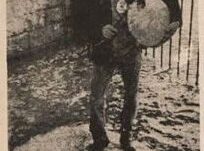 An Alternative View of Thanksgiving
An Alternative View of ThanksgivingAlongside turkey lies other Thanksgiving traditions that many Americans hold dear which are distinctly products of the “New World,” such as cranberry sauce, pumpkin pie, and our brand of football, each of which have impressively old historical roots in their own rights. It is a day in which we are all meant to reflect on the bountiful supplies of food and material wealth of our nation.
-
 Seventy Years Since Nuremberg
Seventy Years Since NurembergBefore the close of the Nuremberg trials in October 1946, the Mass Observation team sent out a number of directives asking the public’s opinion on the trials of the Nazi war criminals. The primary response was that they were a waste of time, a waste of tax payer’s money and the verdict a foregone conclusion. The thought process was that these men were guilty, and would be found so, and that the simplest, and cheapest option, would have been to shoot them on the spot (though some had some more brutal ideas).
-
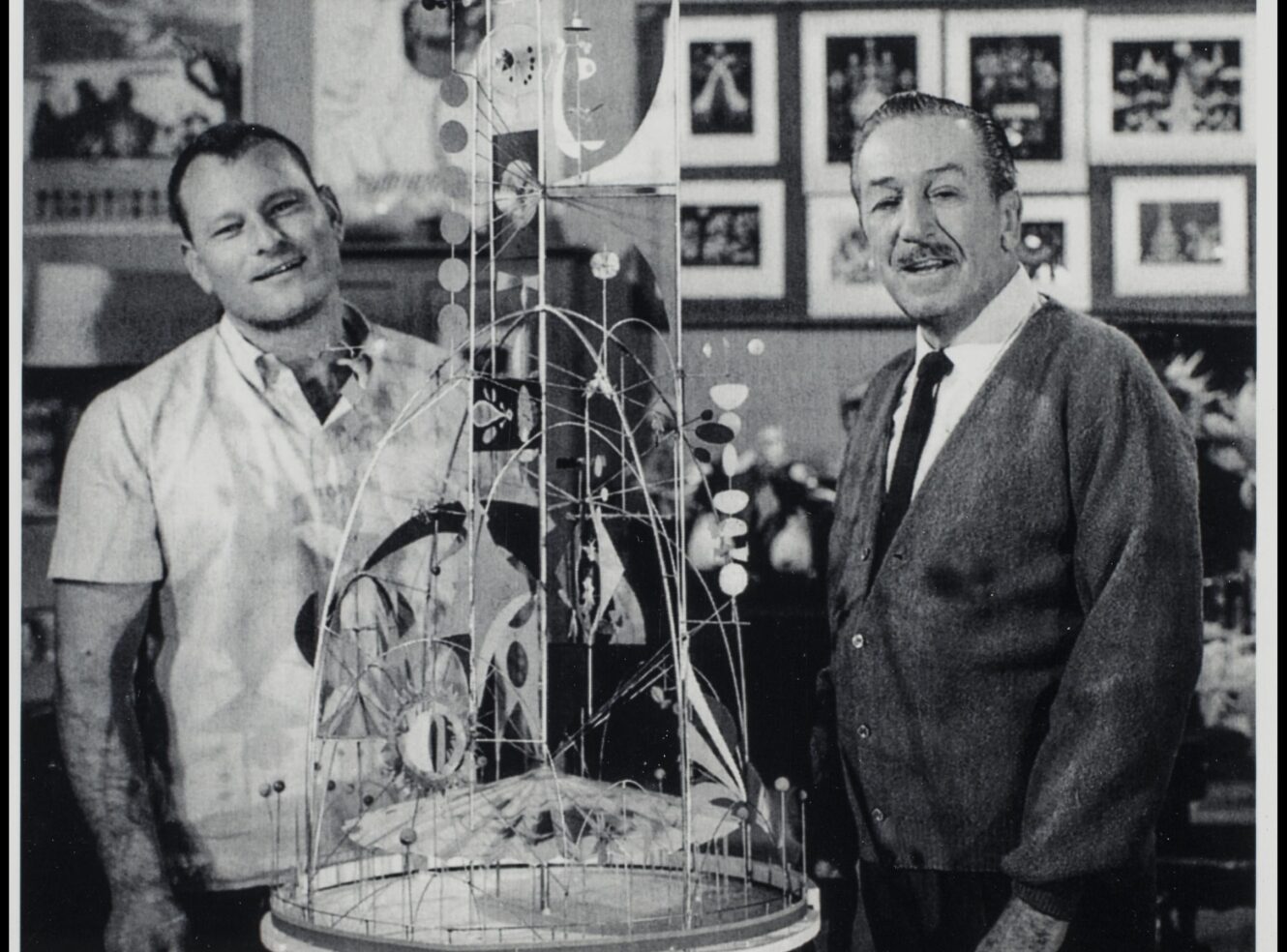 Walt and the world's fair: dreaming up a Disney delight
Walt and the world's fair: dreaming up a Disney delightWalt Disney Parks and Resorts are known the world over for exciting children and adults alike, providing a backdrop for new technology, unparalleled entertainment and constant innovation. Sounds familiar? Ever since the Great Exhibition in 1851, world’s fairs have inspired others, and in the twentieth century the marriage of Walt Disney’s mind to the splendor of the fairs was to prove a winning combination.
-
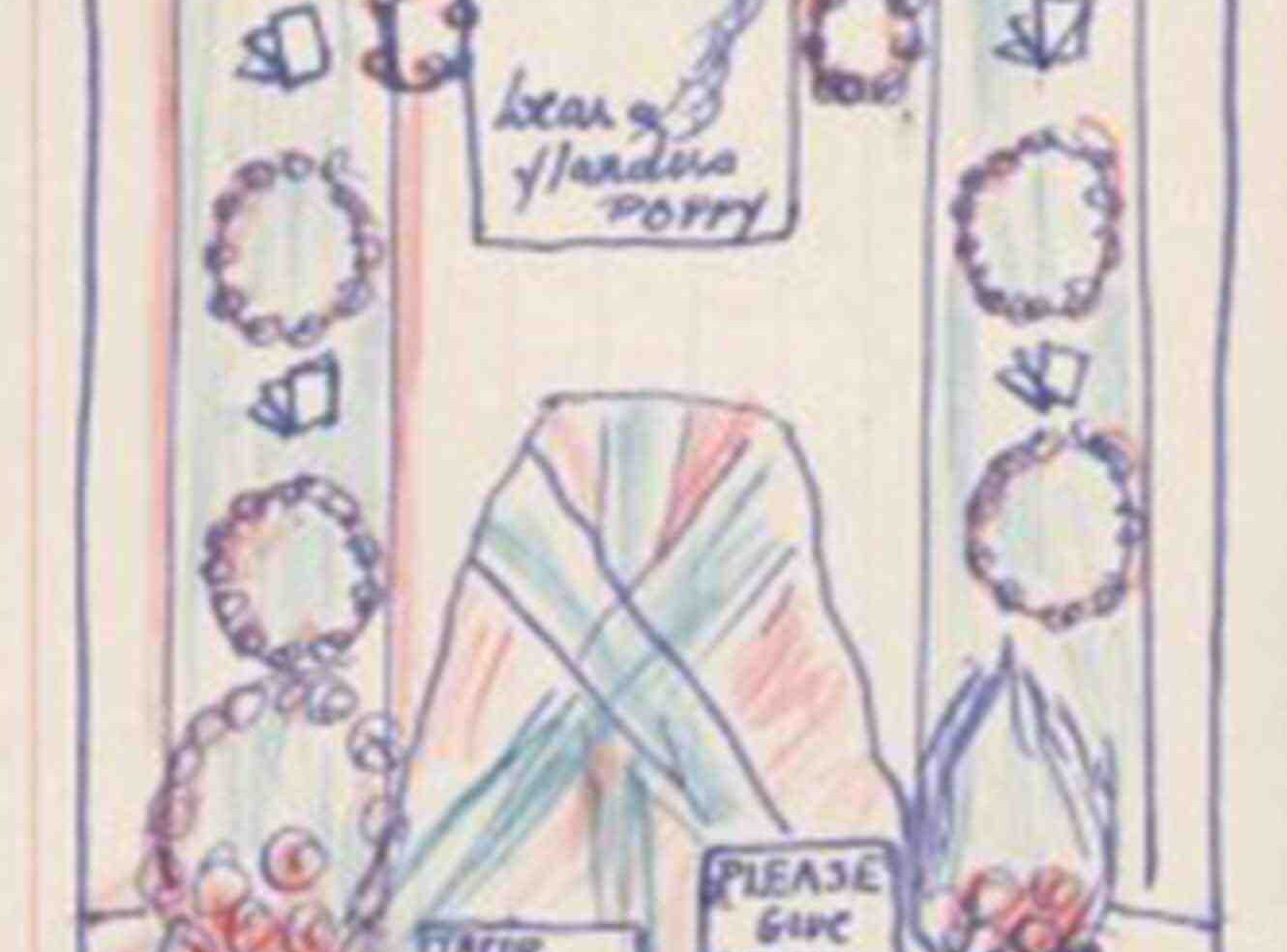 Armistice Day 1937: a special Guest Blog by Fiona Courage
Armistice Day 1937: a special Guest Blog by Fiona CourageI cannot buy a poppy, for I have not got a penny. Not so rich. 11 o’clock, what an unearthly silence. My thoughts are upon my little children in school, their heads will be bowed in reverence to our beloved dead. It is all very sad for the relatives of the fallen, for it seems a pity to keep on reopening an old wound, causing a heartache. I don’t think any body really wishes to remember the war and its horrors. I am thinking about my child’s wet feet, hoping that her leaking shoe will not soak her foot. Wet feet mean bronchitis for her, unless I can stop it with my favourite medicine.
-
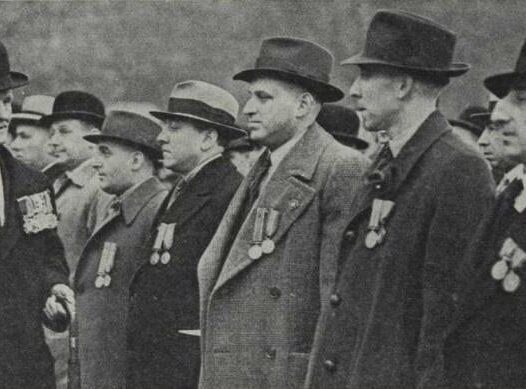 AJEX: British Jewry and Wartime Commemoration
AJEX: British Jewry and Wartime CommemorationAt the stroke of 11am this Sunday, individuals across Britain, including present day soldiers, veterans and their families, will observe a minute silence to remember the sacrifices of members of the British armed forces and of civilians in times of war. Among them will be members of AJEX, The Association of Jewish Ex-Servicemen and Women, which, as its name suggests, is made up of British-Jewish men and women who once served in the British Armed Forces. With a current membership of approximately 4,000 people, AJEX has a long and interesting history spanning over ninety years.
-
 Secrets, Spies and the Spectre of Scandal
Secrets, Spies and the Spectre of ScandalNew details emerged last week of Guy Burgess and Donald Maclean, two civil servants who acted as Soviet spies from the 1930s up until their defection to Moscow in 1951. The reaction to their flight behind the Iron Curtain can be traced in documents from the National Archives in Adam Matthew’s Confidential Print: North America resource.
-
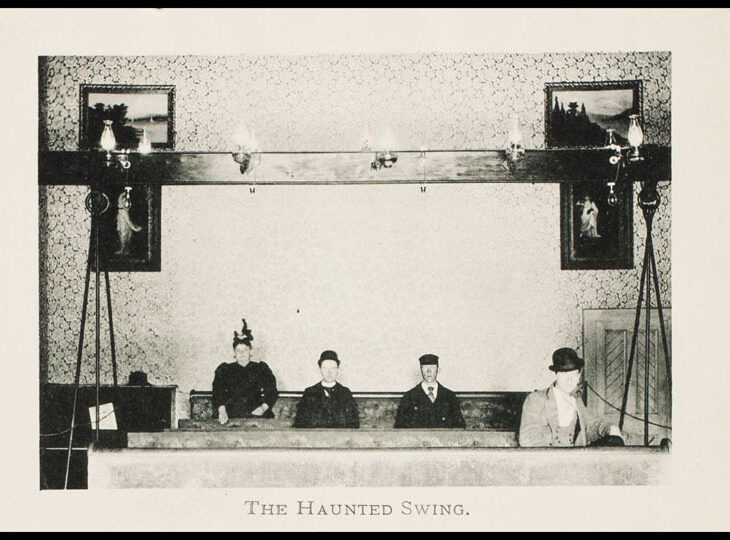 The Haunted Swing: something wicked this way rotates...
The Haunted Swing: something wicked this way rotates...Dust off the face paints, shine-up the vampire fangs and destroy a pumpkin. It must be Halloween. Discover a ghoulish photogravure of an amusement ride called ‘The Haunted Swing,’ from San Francisco’s 1894 California Midwinter International Exposition.
-
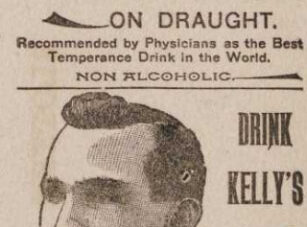 The Kill or the Cure: how trade and science changed perceptions of medicinal drugs
The Kill or the Cure: how trade and science changed perceptions of medicinal drugsBefore the advances in science and trade networks during the nineteenth century, our ancestors, in their isolated communities, had to make sense of the natural world through trial and error. Popular Medicine in America, 1800-1900 documents how physicians used their traditional knowledge of plants and human anatomy to treat ailments, and how they gradually incorporated new ideas and techniques into their cures as science and increased global interaction expanded their understanding.
-
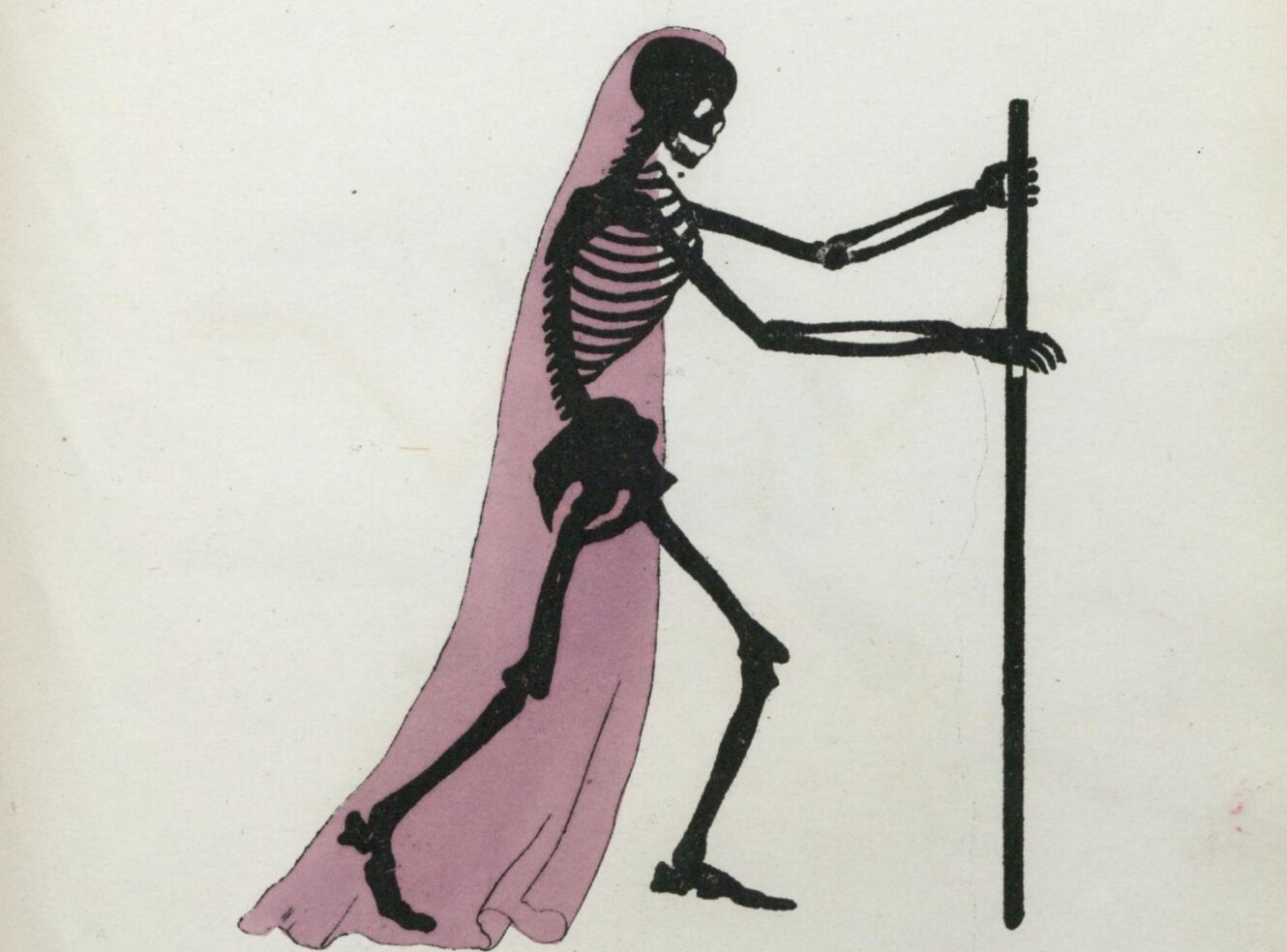 A very Victorian illusion: Ghoulies, ghosties and Halloween nasties
A very Victorian illusion: Ghoulies, ghosties and Halloween nastiesExplore the fascinating world of Victorian illusions with a nineteenth-century guide to spectral tricks and the science behind ghostly apparitions. Discover how perception, light and the human eye create eerie images, blending history, science and Halloween fun in this timeless exploration of Victorian curiosity.
-
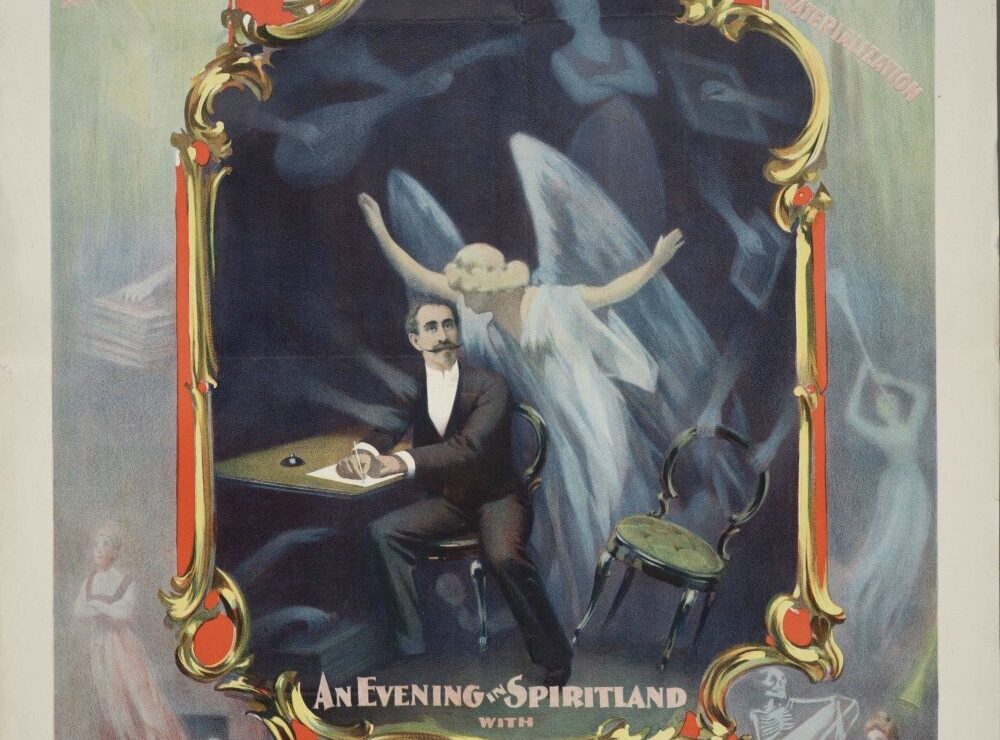 A Blue Room, far from Crimson Peak
A Blue Room, far from Crimson PeakWith chilly mornings and the leaves changing colour we’re reminded that Halloween is just a week away. Any excuse to restock our snack shelf is always widely celebrated at Adam Matthew so we’ll be favouring treats over the tricks.
-
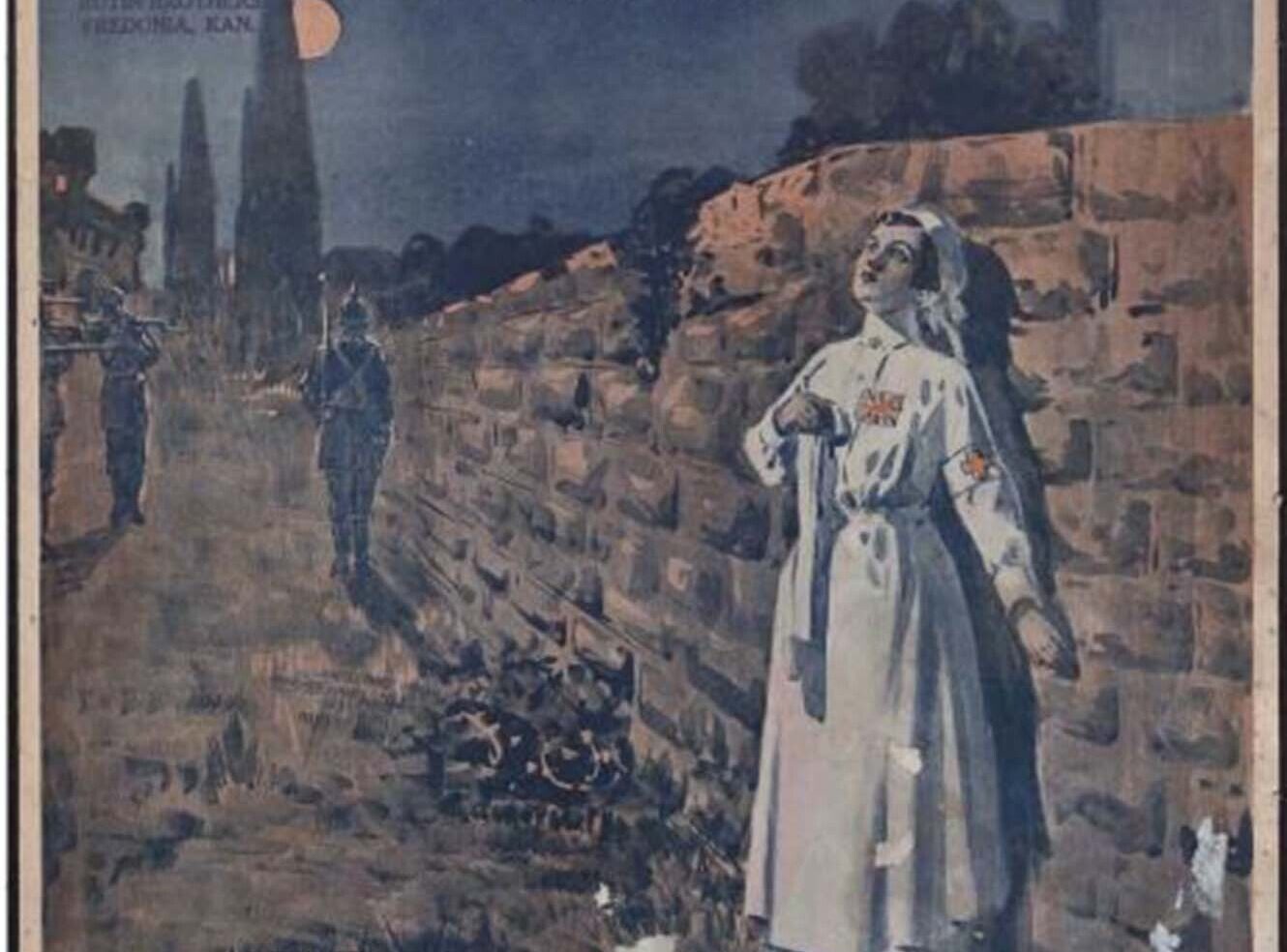 "The Bravest Heart of All"
"The Bravest Heart of All"One hundred years ago, on 12 October 1915, having sentenced her to death for treason, the Germans executed British nurse Edith Cavell (1865-1915) in Belgium.
-
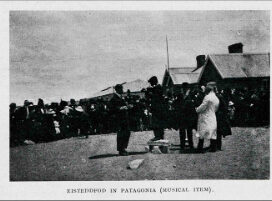 Welsh Patagonia: 150 years of 'Y Wladfa Gymreig'
Welsh Patagonia: 150 years of 'Y Wladfa Gymreig'Having grown up in a Welsh-speaking community in Cardiff, I have long been familiar and fascinated with the history and concept of 'Y Wladfa Gymreig', a Welsh-speaking settlement in Patagonia, Argentina. Founded in 1865, 2015 marks the 150th anniversary of the establishment of Y Wladfa with celebrations taking place throughout the year in both Wales and Argentina.
-
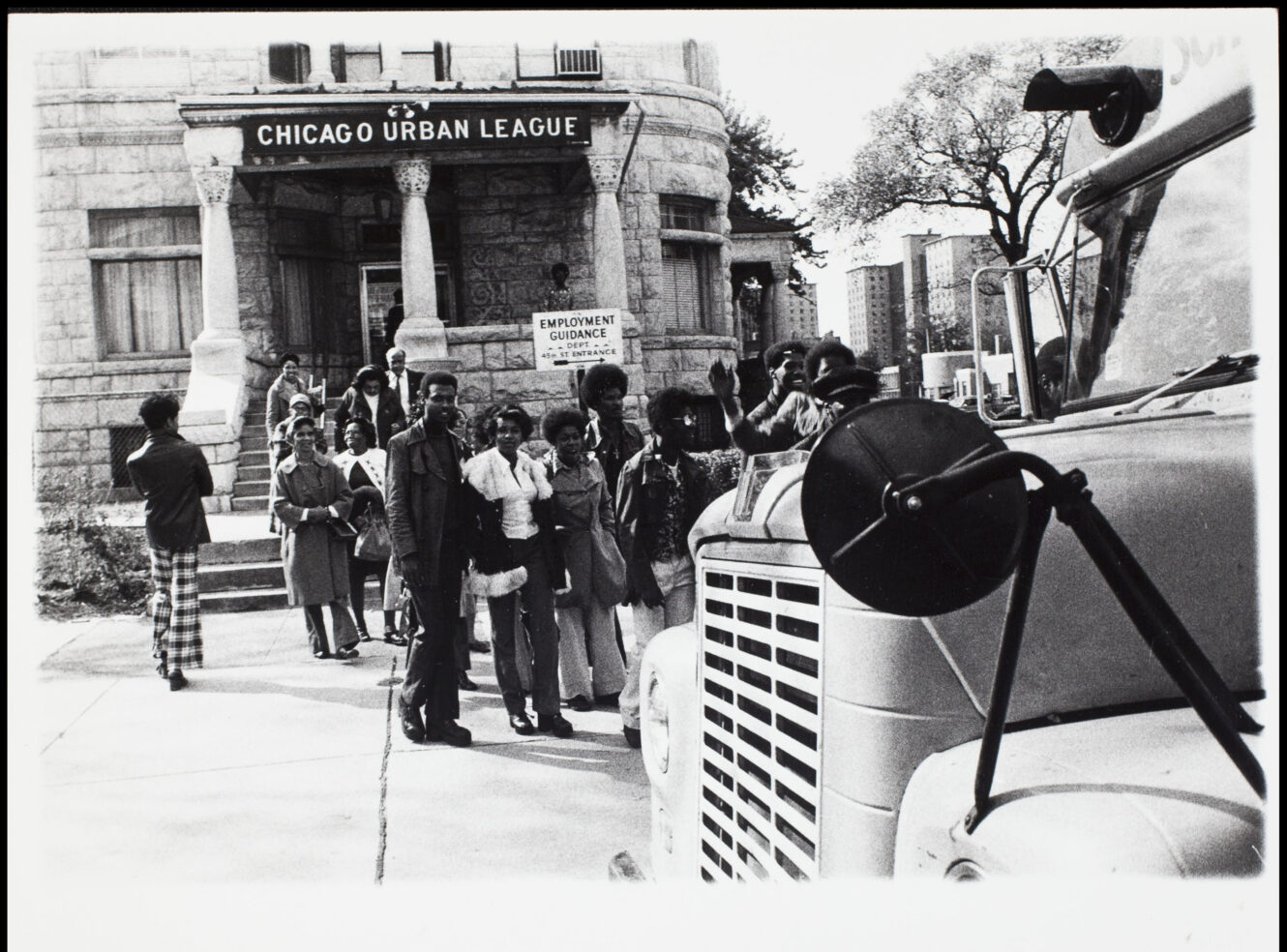 "The mecca was Chicago": A special guest blog by Professor Davarian L. Baldwin
"The mecca was Chicago": A special guest blog by Professor Davarian L. BaldwinWhen most African American migrants connected freedom with the North, “the mecca was Chicago.” But by the 1960s, African Americans, making up one third of the city’s three million, were largely segregated within ghettoes on the South and West sides of town.
-
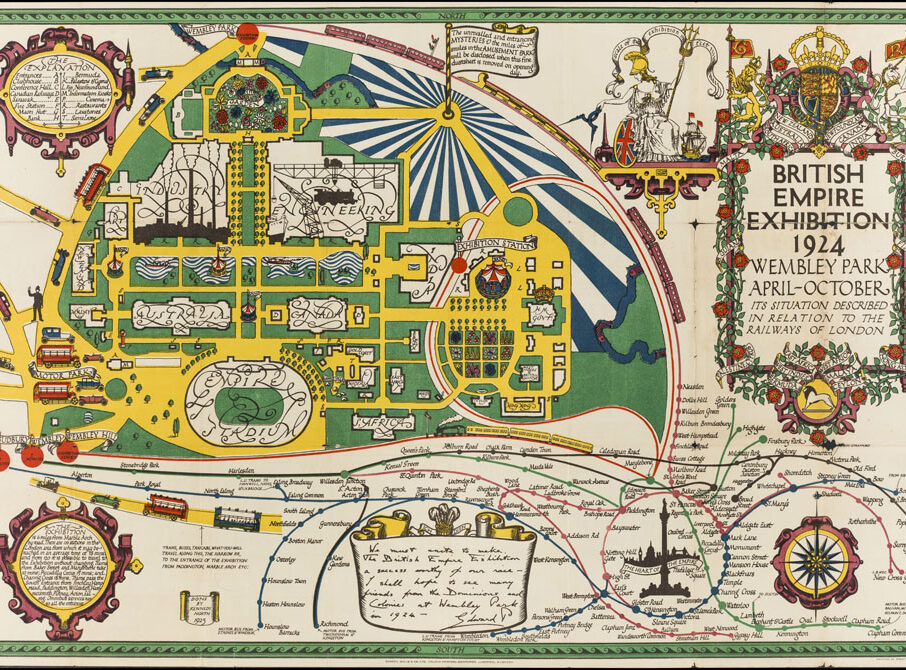 A Royal Affair
A Royal AffairWhilst browsing through a collection of material from our up-coming World’s Fairs resource, a familiar face appeared to me amidst a stream of photographs of jubilant crowds, exotic pavilions and iconic industrial feats. It was none other than Her Majesty Queen Elizabeth II attending Expo 67, Montreal’s international exposition.
